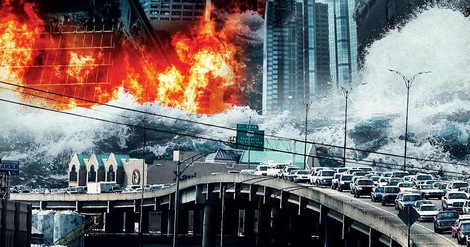Your podcast discovery platform
Curious minds select the most fascinating podcasts from around the world. Discover hand-piqd audio recommendations on your favorite topics.

piqer for: Climate and Environment Global finds
Andrea is a writer and researcher based out of Chicago. Andrea has a Bachelor's degree in environmental science from The Ohio State University and a Master's in Environmental Planning and Management at National Taiwan University, where she specialized in climate adaptation and urbanization. She writes for TaiwaneseAmerican.org, and sends out a biweekly newsletter which includes articles on politics, environment, identity, and intersections of race, class, and gender (http://eepurl.com/bPv-F5).
Welcome to the Age of Climate Migration
Climate refugees will soon be much more common. In the US, more than a million people were displaced due to extreme weather, and this trend is likely to continue as the climate warms. Hurricane Harvey is only the most current example of the kind of disaster that will be driving people from their homes, with Hurricane Katrina perhaps being one of the first. The exodus from Houston echoed another environmental disaster from the 1930s, that of the Dust Bowl.
"In the not-so-distant future, places like Phoenix and Tucson will become so hot that just walking across the street will be a life-threatening event. Parts of the upper Middle West will become a permanent dust bowl. South Florida and low-lying sections of the Gulf Coast will be underwater. Some people may try to stick around and fight it out with Mother Nature, but most will not. "People will do what they have done for thousands of years," says Vivek Shandas, a professor of urban studies and planning at Portland State University. "They will migrate to better climates.""
Studies warn that 30% of land surface will be desert, currently areas home to 1.5 billion people, and that by 2100 nearly 13 million people in the US will be displaced by sea level rise. And of course, the wealthy will be able to adapt but the poor will suffer. Professor Soloman Hsiang of UC Berkeley believes climate change could see the largest transfer of wealth from the poor to the rich in the history of the country. Not only this, but as seen in New Orleans after Hurricane Katrina, recovery will be highly racialized, and non-whites are sure to face institutionalized barriers. Climate change will also bring gentrification to places where people move, or at least, people who have the money to move.
Goodell, the author of the article ends the piece with reflections of the Anasazi of New Mexico, or the city of Angkor Wat, the lost city of Cambodia. Perhaps we will be seen as foolish as those who lost their cities to climate in the past.
Stay up to date – with a newsletter from your channel on Climate and Environment.
